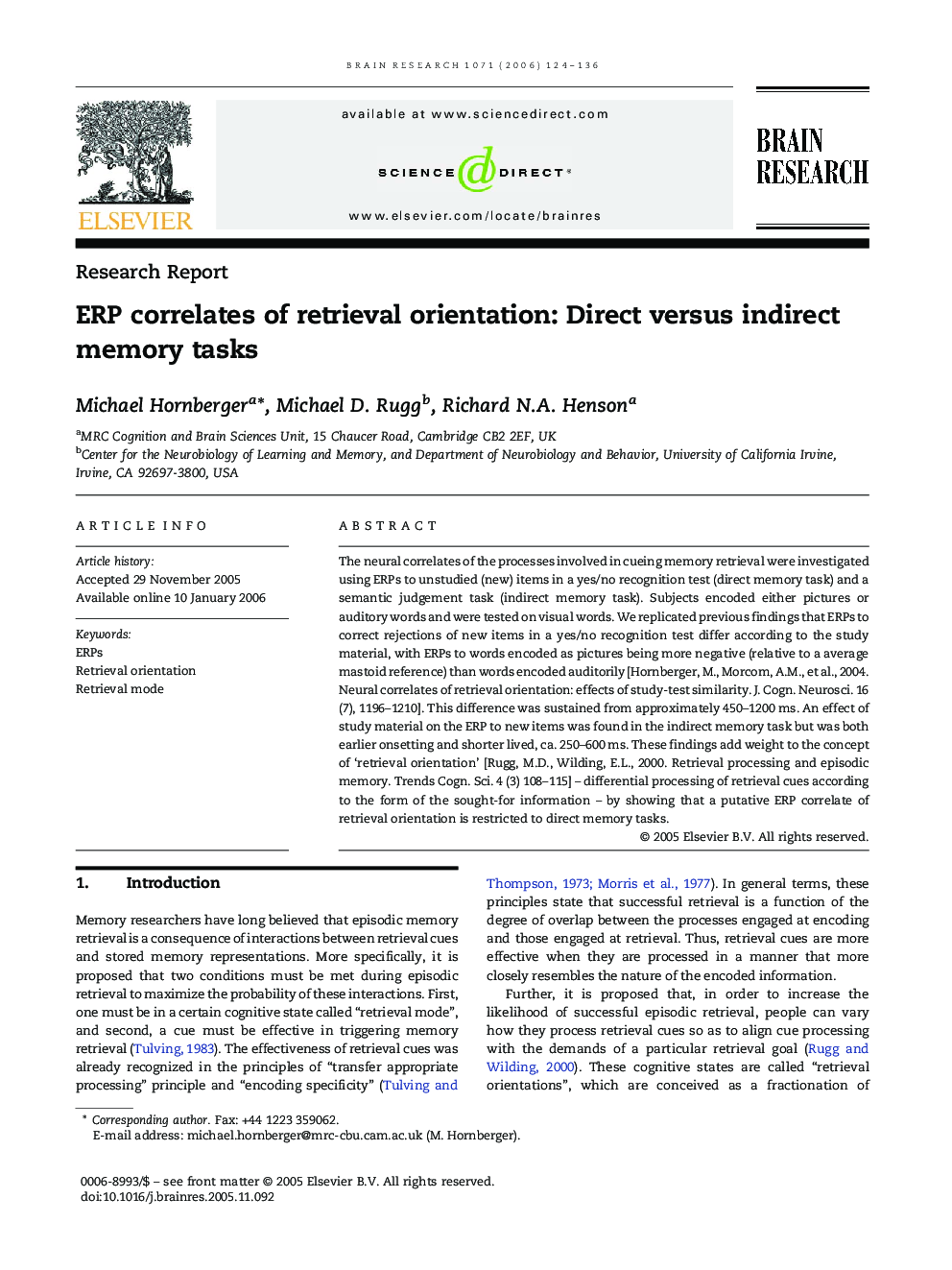| Article ID | Journal | Published Year | Pages | File Type |
|---|---|---|---|---|
| 4333396 | Brain Research | 2006 | 13 Pages |
The neural correlates of the processes involved in cueing memory retrieval were investigated using ERPs to unstudied (new) items in a yes/no recognition test (direct memory task) and a semantic judgement task (indirect memory task). Subjects encoded either pictures or auditory words and were tested on visual words. We replicated previous findings that ERPs to correct rejections of new items in a yes/no recognition test differ according to the study material, with ERPs to words encoded as pictures being more negative (relative to a average mastoid reference) than words encoded auditorily [Hornberger, M., Morcom, A.M., et al., 2004. Neural correlates of retrieval orientation: effects of study-test similarity. J. Cogn. Neurosci. 16 (7), 1196–1210]. This difference was sustained from approximately 450–1200 ms. An effect of study material on the ERP to new items was found in the indirect memory task but was both earlier onsetting and shorter lived, ca. 250–600 ms. These findings add weight to the concept of ‘retrieval orientation’ [Rugg, M.D., Wilding, E.L., 2000. Retrieval processing and episodic memory. Trends Cogn. Sci. 4 (3) 108–115] – differential processing of retrieval cues according to the form of the sought-for information – by showing that a putative ERP correlate of retrieval orientation is restricted to direct memory tasks.
